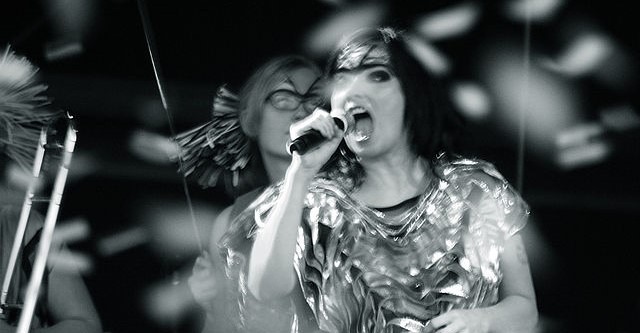Dancing between genres: Bjork’s Debut turns 30
A masterclass in intensity, there’s nobody whose music sounds more viscerally human than Icelandic singer and musician, Björk. Combining elements of techno, jazz, hip-hop, pop, and Bollywood, Björk’s Debut was a reintroduction to the world, as unapologetically herself as she could get. Feeling constrained by her previous musical projects Kukl, Spit and Snot, and The Sugarcubes, Björk had written many of the songs on Debut years before she recorded them, but had put them aside as they didn’t fit with the punk genre she’d been working within. In essence, in defying categorisation, she became her own genre. So, 30 years on from the release of Debut, how do we remember this crucial moment in her musical career?
Listening to Björk’s previous work in bands like The Sugarcubes, nobody could have anticipated the full musical breadth of Debut. The album was born out of Björk’s introduction to the UK’s underground club culture as she left Iceland. Though it is common for musicians to draw from geographical inspiration, Debut demonstrates more than a superficial relationship with London’s clubs. Acid jazz, Euro-house, worldbeat and IDM are all present in this work, indicative of Björk’s willingness to immerse herself in music. The electronic influence also reflected her desire to occupy the cutting edge of music. On house music, Björk explained that the genre was the only pop music that truly felt modern. As you’d expect from someone whose musical career had already spanned 16 years by the time Debut was released, a sense of newness was welcomed, and Debut was truly unlike anything Björk had released before. Ultimately, the only way in which Björk could truly express her musical versatility was to go solo, and Debut truly transcended genre, while all remaining quintessentially Björk.
Debut challenges us to feel the full scope of human experience
In just three months, Debut had sold over 600,000 copies, and it had made it to number three on the UK album charts. It is remembered as the synthesis of electronic music and mainstream pop, being one of the first albums of the 90s to do so – though even this is too narrow an understanding of what the album does. ‘Venus As A Boy’ demonstrates Björk’s versatility, drawing inspiration from Bollywood, featuring tabla player Talvin Singh. This track, in particular, speaks to Björk’s capacity to approach the romance genre with new eyes. Debut offered us love songs that felt visceral and less formulaic than other works in that realm. Listening to the album really feels like you’re being shown your own raw humanity, in a way not usually permitted in normative culture. This is clear in ‘Big Time Sensuality’, as Björk teaches us that “It takes courage to enjoy it / the hardcore and the gentle”. Dancing between genres, from the drunken jazz in ‘Aeroplane’ to the upbeat techno influences in ‘Big Time Sensuality’, Debut challenges us to feel the full scope of human experience in just over 52 minutes.
Electronic elements help the album tap into a sense of purity and playfulness
Electronic music has a reputation for being devoid of emotion, focusing on a feel-good party vibe over all else. Tracks such as Martin Garrix’s ‘Animals’ make no attempt to delve into human emotion and are purely uplifting club tracks. Though electronic music is under no obligation to go deeper, Debut was the beginning of Björk’s lifelong mission to subvert this reputation. Electronic elements help the album tap into a sense of purity and playfulness. As the album progresses there is a departure from techno, as Björk settles into more complex compositions which listeners can immerse themselves into. ‘Come To Me’ pairs strings with a hazy psychedelic pop feel, with vocals that showcase the beauty of Björk’s voice. Following this, ‘Violently Happy’ focuses back on techno, taking us elsewhere. The strong and persistent bass feels like a heartbeat, and her voice joins the ensemble as one of the instruments. You can feel the music in the pit of your stomach.
Looking at Björk’s subsequent work, especially her latest album release Fossora, it is clear that Debut laid the foundations for a solo career that has been free from the confines of genre. More orchestral elements in her later work, such as the songs ‘Jóga’ and ‘Atopos’, represent a return to the classical training she received as a child, combined with the other musical elements that have constituted her sound throughout her career. In particular, ‘Sorrowful Soil’ from her newest release is an otherworldly hymn, dedicated to both life and death. Her voice is a burgeoning life force and she continues to push musical boundary after boundary, challenging listeners as she goes. Björk’s deep-rooted relationship with music, from Debut and beyond, speaks to her intense relationship with the force of life and her innate ability to explore this musically has cemented the uniqueness of her point of view.

Comments